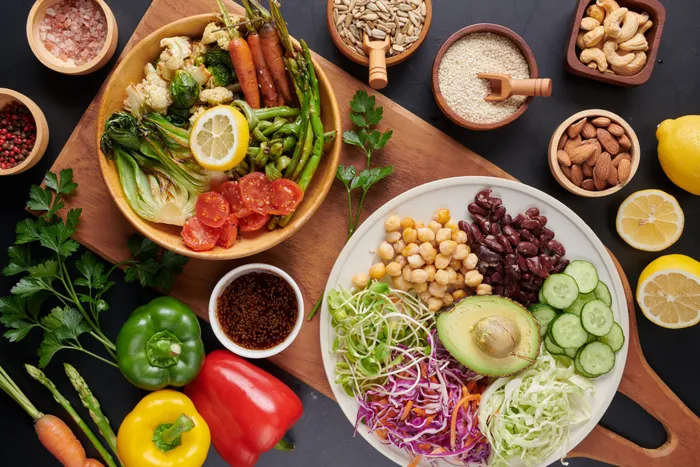How healthy eating can transform lives

The message is clear: to live better, healthier, and longer, we must start by choosing the right foods.
The adage “we are what we eat” holds enduring wisdom, especially in today's world where dietary habits are increasingly linked to the rise of non-communicable diseases (NCDs) such as diabetes, heart disease and hypertension.
In South Africa, the impact of poor nutrition is becoming ever more apparent as these lifestyle-related diseases continue to burden the healthcare system and affect the quality of life of millions.
Unhealthy eating patterns not only lead to physical ailments but also affect mental well-being, productivity and the overall resilience of communities.
Recognising the urgent need to address this, the South African Department of Health, alongside various stakeholders, has dedicated October 9 to 15 to National Nutrition Week.
This annual initiative aims to raise awareness about the profound difference nutritious food can make in combating NCDs and improving the overall well-being of the population.
In 2024, the "Eat right for a better life" theme focuses on encouraging South Africans to make healthier food choices in their homes, workplaces, schools, and communities.
By embracing a diet rich in wholesome, nutrient-dense foods, individuals from all walks of life can take proactive steps towards preventing NCDs, and enhancing their quality of life.
This campaign serves as a critical reminder that the foods we consume are not just a reflection of our personal choices – they are a key determinant of our future health.
Nutritious eating is not a luxury but a necessity for all and by making healthier food more accessible, we can create a ripple effect that benefits entire communities.
As South Africa celebrates National Nutrition Week, the message is clear: to live better, healthier and longer, we must start by choosing the right foods today.
In recent years, South Africa has been grappling with significant nutritional challenges that hinder many from living a healthier and better life.
Data from the National Food and Nutrition Security Survey (NFNSS) in 2023 revealed troubling statistics about the nation’s children.
Around 22.6% of children under the age of five were found to be overweight, a sharp increase from reported in 2016 by the South African Demographic and Health Survey (SADHS).
Similarly, both surveys reported that stunting, a sign of chronic undernutrition, affects just over a quarter of these children. Moreover, the prevalence of underweight children has risen from 6% in 2016 to 7.7% in 2023.
The situation is no better among adults. Over the past seven years, the prevalence of overweight and obesity among South African women has remained high at 68%, while the rate among men has increased to 38.2%.
Additionally, 63.5% of South African households experienced food insecurity in 2023. Many low-income families consume diets where unhealthy, processed foods make up 40% of their meals.
These foods, which are high in sugar, salt, and unhealthy fats, have been linked to over 30 health issues, including obesity, heart disease, and Type 2 diabetes.
Experts stress the importance of good nutrition for better health and well-being. Maria van der Merwe, President of the Association for Dietetics in South Africa (ADSA), emphasised that “eating well not only gives us more energy and reduces the risk of disease but also improves our overall well-being.”
She added that the foundation of good nutrition is access to affordable, nutritious food. This is especially critical for children who need healthy foods to reach their full potential.
The role of healthy eating in disease prevention
In line with National Nutrition Week 2024, Professor Pamela Naidoo from the Heart and Stroke Foundation South Africa (HSFSA) highlighted the power of nutrition in preventing diseases.
“It is estimated that 70% to 80% of heart diseases and strokes can be prevented by making healthy lifestyle choices,” she said.
These choices include eating a balanced diet, staying physically active, and avoiding harmful habits like smoking and excessive alcohol consumption.
Naidoo dispelled the myth that eating healthy is expensive or difficult. She explained that affordable, nutritious foods like vegetables, fruits, legumes, and whole grains are accessible and easy to incorporate into daily meals.
“Even small improvements in your diet can make a big difference to your health and well-being,” she assured.
Simple tips for eating well
Van der Merwe offered simple tips to help South Africans eat better and improve their quality of life:
Add more fruits and vegetables to every meal: Whether it’s adding bananas to your breakfast or sneaking leafy greens into an egg dish, find ways to increase your intake of whole foods.
Drink water: Water should be the beverage of choice. Making it a daily habit helps avoid sugary drinks.
Cook at home: Preparing meals at home allows for better control over what you eat, helps with portion control, and can be a fun family activity.
Get children involved: Encouraging kids to participate in meal preparation not only builds their life skills but also helps them learn about the importance of good nutrition from an early age.
Choose nutritious, affordable foods: Look for options like wholewheat bread, fresh produce, and legumes, which are both healthy and budget-friendly.
Cape Times
Related Topics: